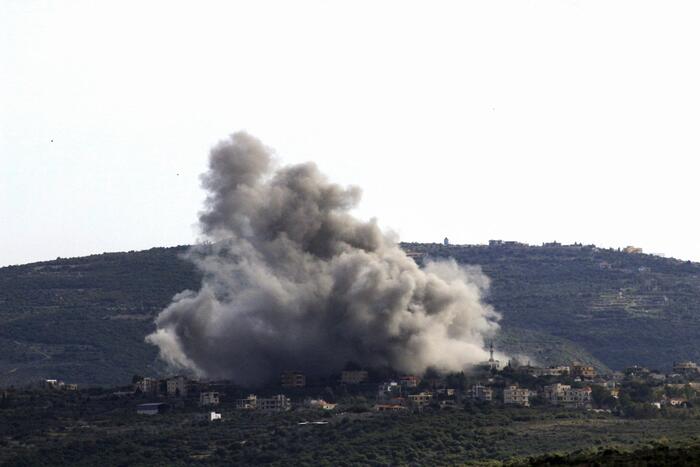Europe and the United States are not alone.
South Korea, Japan, Singapore and Taiwan have joined the actions of both to counter the Russian offensive in Ukraine.
In fact, the Russian leader, Vladimir Putin, has included the four Asian countries in his list of countries that "have committed unfriendly actions against Russia."
Why have these countries decided to help the Western world in its fight to counter the Russian invasion of Ukraine?
The main reason is that there are Asian countries that have realized that what happens in Europe affects them directly.
Putin's actions in Ukraine have only increased this idea among the main Asian democracies.
First, they see parallels between Russia's actions in Ukraine and China's threat to Asia.
In particular, these countries fear a possible Chinese offensive on Taiwan.
The fact that they have joined the sanctions that the EU and the United States have imposed on Russia should be understood as a message not only to Moscow, but also to Beijing.
More information
Latest news from Ukraine, live
China has been building artificial islands in international waters in the South China Sea for years.
Many Asian countries consider these structures a first step by the Chinese government to control navigation in these waters.
Likewise, South Korea, Japan, Singapore and Taiwan support values that some consider Western but that in their view are universal, such as democracy, international law or human rights.
South Korea, Japan and Taiwan appear in all international rankings as the only full democracies on the Asian continent.
Singapore is not, but it does uphold international law.
In the same way that many Europeans do not understand that a country can invade its neighbor in the 21st century, the leaders and citizens of these four countries have been surprised by the fact that Putin seems willing to end Ukraine as we know it. .
Added to this is the work that the EU, NATO and countries such as Germany, France or the United Kingdom have been carrying out for years to strengthen cooperation with Asian countries in security matters.
There is constant dialogue, as well as cooperation through exercises on cybersecurity, joint maritime exercises or exchanges of personnel.
Thanks to this dialogue and collaboration for years, both the EU and different European governments were able to pick up the phone, talk to their Asian counterparts and quickly get them to support the isolation campaign against Russia.
The willingness of these Asian countries to support Europe could be attributed to US pressure.
After all, all four are either allies or have close security relations with Washington.
However, this is a simplistic explanation.
None of them significantly supported the sanctions imposed on Russia after its annexation of Crimea in 2014, seeing it as an issue to be resolved between Europe and Moscow.
And other countries with fairly good security relations with Washington, such as Thailand or Vietnam, have been reluctant to even condemn Russia for its actions.
The behavior of Xi Jinping's China,
It is to be hoped that this support on issues of importance to Europe will continue in the future.
Cooperation to defend against cyber attacks from China, North Korea or Russia has been going on for years.
Naval forces from South Korea, Japan and Singapore have been cooperating with the EU's Operation Atalanta off the Horn of Africa for more than a decade.
Working together to isolate Russia after its invasion of Ukraine is just one more step in cooperation on security and defense issues.
Moreover, there are more and more Asian countries that have as a strategic objective the improvement of relations with Europe in terms of security.
Donald Trump's disdain for his allies was a
shock
from which Asian leaders have yet to recover.
The possible return of Trump to the US presidency, or the possible election of another president equally critical of his allies, is a very present threat in the calculation of Asian leaders.
And in the same way that the EU, NATO and more and more European countries consider Asia and the Indo-Pacific a region in which they have to play a relevant role, there are Asian countries that now already have the same attitude towards Europe.
The invasion of Ukraine has prompted them to take action.
Ramón Pacheco Pardo
is Professor of International Relations at King's College London and KF-VUB Korea Professor at the Free University of Brussels.
Exclusive content for subscribers
read without limits
subscribe
I'm already a subscriber








